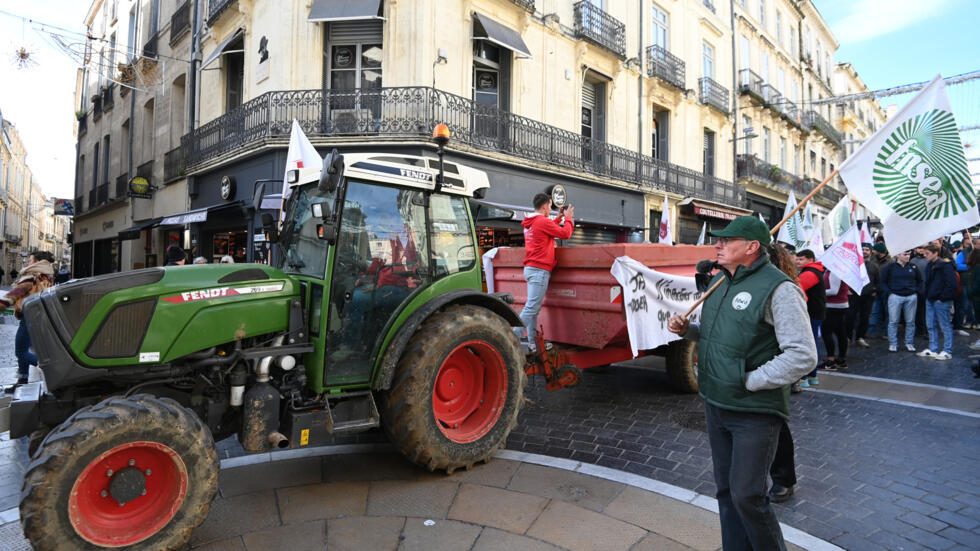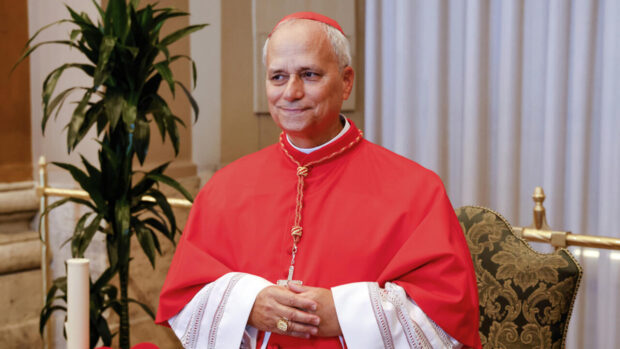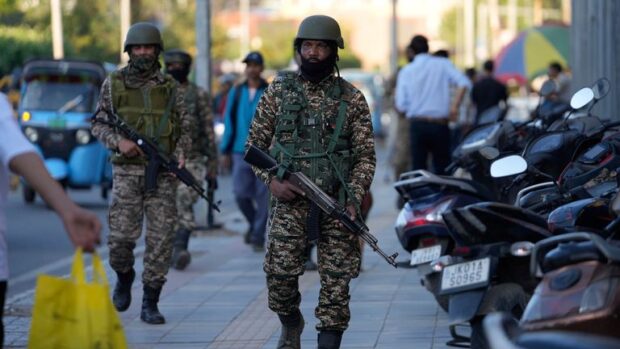
French farmers have intensified their protests against a proposed trade agreement between the European Union and the Mercosur bloc of South American countries, expressing growing discontent over the potential influx of cheaper foreign agricultural products. The protests, which began on Monday, have escalated with blockades of major highways and symbolic demonstrations across the country.
Farmers fear that the EU-Mercosur deal, which would create the world’s largest free-trade zone, will flood European markets with cheaper meat and produce from South American competitors who are not subject to the same stringent regulations as European farmers. They argue that this will undermine their livelihoods and threaten the future of French agriculture.
On Tuesday, farmers blocked the A9 motorway, a crucial trade route between Spain and the rest of Europe, causing significant disruption to the flow of goods. They also staged demonstrations in front of government buildings and burned vines in Bordeaux, symbolizing the potential devastation to the French wine industry.
The protests have garnered support from various farming unions, including the hard-line Coordination Rurale (CR) and the more moderate FNSEA and Jeunes Agriculteurs. They are demanding that the French government take a stronger stance against the deal and protect the interests of French farmers.
While the French government has expressed opposition to the Mercosur deal, protesters are urging President Emmanuel Macron to take more decisive action. They are frustrated by what they perceive as a lack of progress on addressing the challenges facing French agriculture, including excessive bureaucracy, low incomes, and poor harvests.
Macron, who is currently attending the G20 summit in Brazil, has stated that France is not alone in its opposition to the accord. He argues that the deal, which has been under negotiation for decades, is based on outdated preconditions.
The protests highlight the deep anxieties within the French agricultural sector about the potential impact of globalization and trade liberalization. Farmers are calling for greater protection from foreign competition and support for their livelihoods in the face of increasing economic pressures.
The future of the EU-Mercosur deal remains uncertain as France continues to lead the resistance against its ratification. The outcome of these negotiations will have significant implications for the future of European agriculture and the livelihoods of farmers across the continent.

















Be the first to leave a comment